Growing with Our Investors—Striving Forward to Build a New Type of Modern Industrial Park (2000-2004) (Part II)
Since 2000, the Tianjin Economic-Technological Development Area (TEDA) entered a period of rapid growth with proactive services to investors. High value-added and high-tech industries such as automotive, electronics, machinery, pharmaceutical chemicals, and food and beverages flourished, making TEDA a front runner of economic growth among all national-level development zones in China. During this period, TEDA adopted a development strategy known as “walking on two legs”, continuously attracting investment while prioritizing technological innovation. This approach aimed to optimize industrial structure and promote the growth of high-tech industries.

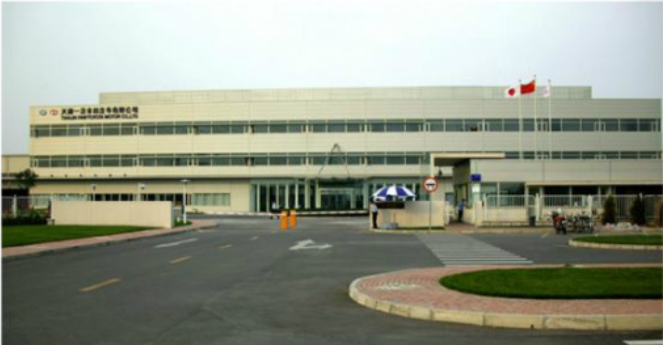
As one of the most vibrant economic regions in North China and even the whole country, TEDA welcomed FAW Toyota at the turn of the 21st century, turning its “auto industry dream” into reality. This automobile giant, co-established by China FAW Group Co., Ltd. and Japan’s Toyota Motor Corporation, injected new vitality into TEDA’s industries, visibly optimized the industrial structure of Tianjin and further boosted the development of the entire automotive industry in China.
The investment decision of Toyota was not made overnight. As early as 1992, representatives from TEDA Administrative Commission made initial contact with Toyota and had some preliminary understanding of the group during their visit to Japan with the Tianjin delegation. Afterward, TEDA persistently looked for further communication opportunities to strengthen mutual trust between the two sides. In 2000, during their second visit to Toyota, TEDA Administrative Commission learned that Toyota was interested in partnering with FAW and related companies to jointly invest in and establish FAW Toyota. To attract this project, TEDA made it a top priority for the entire region, and started hard negotiations with the Japanese side after thorough preparation. By that time, TEDA had developed an effective set of negotiation strategies and skills thanks to years of experience in project negotiation. Despite of the challenging negotiation process, TEDA adhered to two principles: securing the project at all costs in principle while protecting TEDA’s interests as much as possible in specific details. Ultimately, with efforts from both sides, FAW Toyota settled down in TEDA.
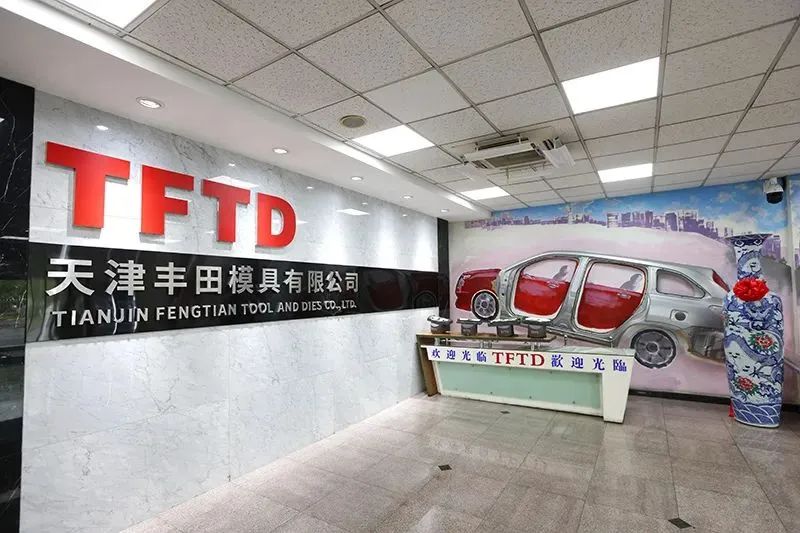
Subsequently, many suppliers of Toyota such as Aisin Transmission, Intex Auto Parts, Toyota FAW (Tianjin) Dies, and Yazaki followed the steps of Toyota and quickly forming a massive automotive industry cluster in TEDA. TEDA provides these automotive enterprises with customized and full-life-cycle services ranging from early investment facilitation to project construction and operational support. As Toyota’s only dies factory in China, Toyota FAW (Tianjin) Dies Co., Ltd. (TFTD, now known as Tianjin Fengtian Tool and Dies Co., Ltd.) registered in TEDA in March 2004 and completed the entire process from groundbreaking to the start of production in just nine months. “Thanks to TEDA’s strong support and efficient cooperation, TFTD was able to break ground, start construction, and begin production very fast,” said Yasuda Tomonari, then General Manager of TFTD.
Today, TEDA has become a major automotive hub in China, and was recognized as a National-level Export Base for Cars and Components and one of China’s earliest Demo Bases for Auto Neo-industrialization. It has fostered a world-class automotive industry cluster. FAW Toyota kept on expanding its business in TEDA. It realized integrated operation covering R&D, production, sales, and logistics. Moreover, its Tianjin facility has been upgraded into FAW Toyota’s China headquarters, overseeing automobile manufacturing in Tianjin, Chengdu, Changchun, and other locations in the country. Meanwhile, the product supply scope of TFTD has expanded to Toyota’s global factories, demonstrating strong competitiveness worldwide. FAW Toyota, together with TFTD and many other suppliers along the industrial chain, taking root deeply in TEDA, committed to the Chinese market, and growing with TEDA, has developed into a role model for Sino-foreign equity joint ventures.

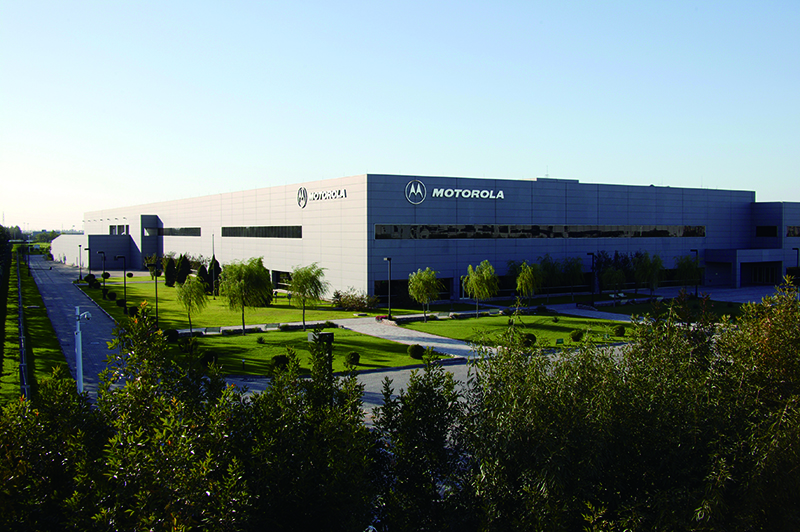
TEDA is a witness and active participant of the rapid development of China’s electronics & telecommunications industry. In the 1990s, driven by Motorola, TEDA’s electronics & telecommunications industry entered a phase of rapid and high-quality growth right from its inception, quickly becoming a pillar industry for the area. For over a decade, TEDA gradually established an electronics & telecommunications industry cluster centered around multinational corporations such as Motorola, Samsung, Honeywell, and ROHM, driving the iteration and upgrade of the industry in Tianjin. By 2004, TEDA’s electronics & telecommunications industry had achieved an output value of 116 billion yuan, accounting for more than 85% of Tianjin’s total. Over 20 companies’ products held the top market share nationwide, making TEDA a manufacturing base for high-end information products in China. At that time, “One out of every five mobile phones in China is produced in Tianjin. One out of every four video recorders comes from Tianjin. And one out of every ten televisions is made in Tianjin,” People’s Daily reported.
As Motorola blazed a trail for TEDA’s electronics & telecommunications industry, FAW Toyota fueled the development of TEDA’s automotive industry. Following FAW Toyota’s settlement, numerous auto parts suppliers of Toyota together with Korean auto parts suppliers flocked to TEDA, gradually transforming the region into a major automobile manufacturing base in North China.
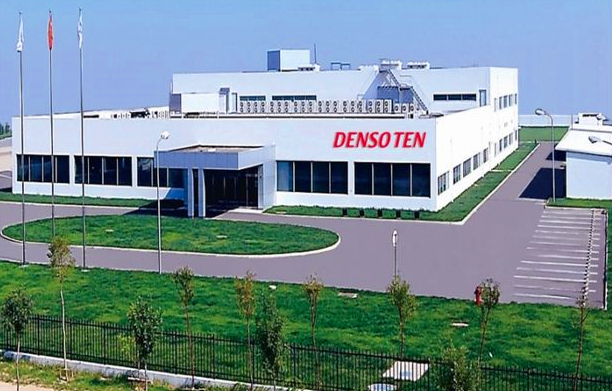
Robust electronics & telecommunications industry and rapidly emerging automotive industry prepared fertile soil for TEDA’s automotive electronics industry. Automotive electronics R&D institutions such as Denso Ten and Panasonic Automotive successively settled in TEDA. Motorola’s automotive electronics factory was soon set up here and scheduled to begin production in 2005. In August 2004, Denso Ten embarked on a fast-paced growth journey in TEDA after its first-phase plant was put into operation. In 2007, its Japanese headquarters made further investments to build a second-phase plant. Leveraging TEDA’s strong clustering effect in consumer electronics, electrical, and automotive sectors, Denso Ten was able to swiftly capture market demand, anticipate trends, and timely respond to customer needs in its research and development, reinforcing the company’s confidence to further expand in TEDA. After two decades of development, the company’s business scope had expanded from commissioned design merely from its Japanese headquarters to such tasks from Japanese, European, American, and Chinese automakers as well as commissioned development tasks of automotive navigation products from the Middle East and Southeast Asia. This success story of Denso Ten is an epitome of TEDA’s thriving automotive electronics industry.

TEDA has realized early on that an advanced region must keep seeking new supporting industries and enterprises so as to upgrade overall industrial structure and achieve balanced and comprehensive regional economic development. After achieving clustering development of high-value industries such as electronics & telecommunications and automotive, TEDA set its sights on biomedicine.
At the time, TEDA already fostered the right industrial foundation and environment for biomedicine. Global leading biomedicine enterprises, such as Novo Nordisk, the world’s largest insulin manufacturer, Novozymes, the world’s largest enzyme producer, and GlaxoSmithKline, the world’s top biopharmaceutical company, had already invested and built factories in TEDA, bringing the most advanced technologies to Tianjin and China’s biomedicine industry. Innovative enterprises like Asymchem also thrived here, demonstrating the tremendous development potential of TEDA’s biomedicine industry.
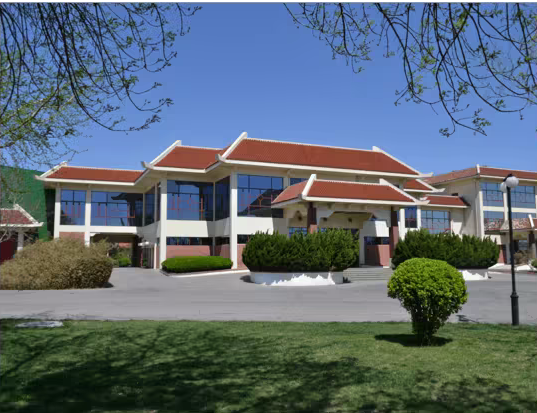
To strengthen the overall planning of its biomedicine industry, TEDA drew up the Overall Plan for the Biomedicine and Modern Medicine Industry in TEDA, offering strong policy support for the industry to foster a clustering effect in an orderly and step-by-step way. Servier, with its Tianjin production base breaking ground in 2000, kept on expanding its investment and capacity in TEDA and accelerating localization process. Now its site in TEDA has become Servier Group’s sole facility supplying original drugs to China and some Asian countries. Tianjin TEDA Biomedical Engineering Co., Ltd., a biomedicine startup, realized remarkable growth after its establishment in 2000 and got listed on the Hong Kong Growth Enterprise Market in just over two years.
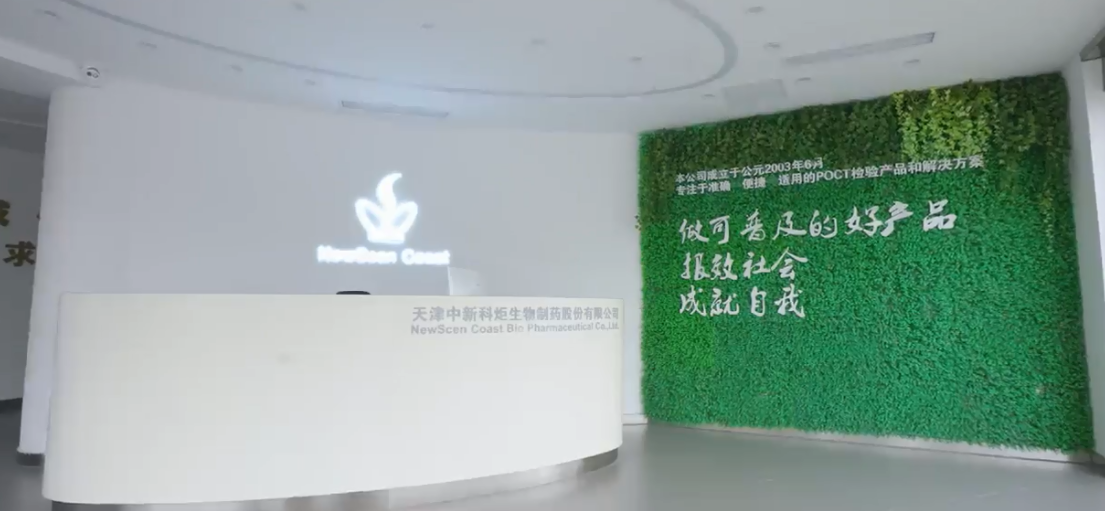
Similarly, NewScen Coast Bio-Pharmaceutical Co., Ltd., saw rapid development in TEDA. According to then General Manager Dong Shengming, after surveying many locations around Beijing, the company ultimately chose TEDA due to its fast growth and excellent soft environment. “We encountered almost no problems here. Many issues that are difficult to handle elsewhere didn’t arise in TEDA.” TEDA’s superior industrial environment and services had attracted an increasing number of multinational corporations and innovative enterprises to settle down and continuously add on their investments, securing the rapid development of the biomedicine and shaping the industry into a regional economic pillar.

TEDA’s strong capabilities for sustainable development is attributable not only to the continuous settle-down of high-quality global enterprises but also to its vigorous support to high-tech industries and the creation of a technological innovation system.
In 2001, TEDA issued the Regulations on Promoting the Development of High-Tech Industries in TEDA to step up support for research institutions and projects for the industrialization of high-tech achievements and to provide policy assistance for senior talents to start businesses and achieve growth in the area. Guided by these policies, a large number of high-tech enterprises gathered here at a fast pace. By 2003, the output value of TEDA’s high-tech products reached about 72 billion yuan, accounting for nearly 60% of the total industrial output of the area. By the end of 2004, TEDA had earmarked 1 billion yuan for technological development and become home to 110 high-tech enterprises, 6 high-tech incubators, 4 venture capital companies, and about 30 engineering research centers and corporate R&D centers, seeing remarkable achievements in technological innovation. TEDA also encouraged multinational corporations to establish R&D centers in the area and offered financial and policy support to them. Global enterprises such as Motorola, Honeywell, and Panasonic Automotive Systems set up R&D centers in TEDA, which helped to further optimize regional industrial structure. A technology innovation promotion system, comprised of domestic or foreign-funded R&D centers, incubators, and industrialization bases has initially taken shape in TEDA, backed by ever-improving financing channels and favorable policies.
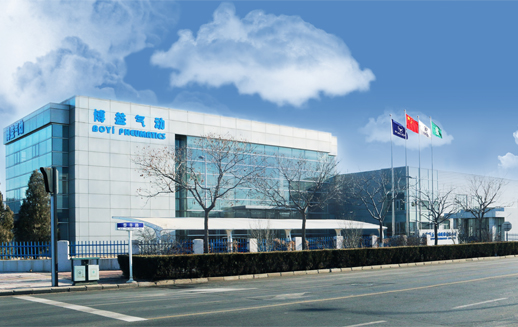
Tianjin TEDA International Entrepreneurship Center, the earliest and largest incubator in TEDA, has successfully fostered so many small and medium-sized tech enterprises, of which Boyi Pneumatics is an outstanding example. When the company was just established, all procedures and issues were handled by the Center. For Boyi, the Center is a strong backer and the source of its confidence. A representative from the Center stated, “Infant companies are typically technology-centered when overseas students return to start businesses, but their growth requires not just technology but also management and communication skills. We help these entrepreneurs with such things they are not proficient at until they graduate from our incubator and get ready to grow independently in the market.” In just a few years, Boyi Pneumatics transitioned from merely providing technical services to realizing mass-production. It has since become a leader in the R&D of automatic control devices and key measurement and control components for industrial fluid, earning recognition as a national high-tech enterprise and a “Little Giant” specializing in niche industries. TEDA has grown into a cradle for numerous high-tech small and medium-sized startups.
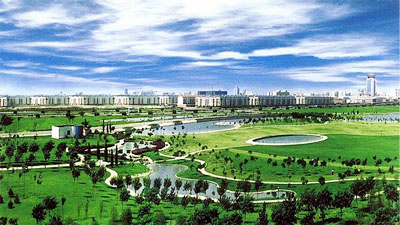
By continuously attracting multinational corporations to gather top-level industries and vigorously introducing high-tech projects to cultivate high-tech industries, TEDA had been striving forward to improve its business environment and relentlessly pursue industrial development at a higher level. TEDA’s efforts in shaping a modernized new model for industrial parks will never cease.













 津公网安备 12019002000128号
津公网安备 12019002000128号

